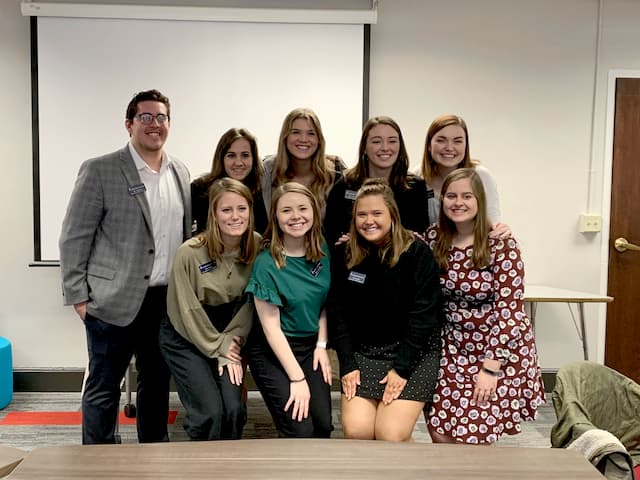
Samford University’s Orlean Beeson School of Education and Mountain Brook Elementary School have completed their first year of a new partnership. In September 2019, 28 of Samford’s teacher education candidates were paired with pre-K through sixth-grade teachers at Mountain Brook Elementary after being interviewed by Mountain Brook Elementary faculty and matched based on personality and teaching style.
This partnership is based on an immersion model titled "Alliance for Learning: Investing in the Education of Students" (ALLIES) that was designed by Samford University faculty members. Amy E. Hoaglund, Karen J. Birkenfeld Amanda Stone, and Betsy Rogers developed this model that provides a rigorous, clinically based teacher education program where candidates are truly immersed in their partnering school. Much of this immersion model was based on the previous work done with Trace Crossings Elementary School, a successful partner of Orlean Beeson School of Education for nine years.
While forming partnerships with K-12 schools is not new, Samford’s immersion model is a new approach. Traditionally, these partnerships have not always been mutually beneficial, and candidates may spend only a few weeks in a school, have a lack of school faculty support or have limited involvement outside the classroom. The partnership between Mountain Brook Elementary and Samford University was thoughtfully crafted, and the two organizations worked together to pilot the program before launching last fall. Samford’s approach allows teacher candidates to be embedded in the school’s culture.
Hoaglund compares the model to the health care industry. “Similar to training a health care professional, you wouldn’t train a doctor or nurse away from a hospital the whole time,” she said. “They’re going to be in a hospital immersed in that culture. We believe the same for training teachers and we believe in that model.”
For a semester and a half, candidates spent three days a week on Mountain Brook’s campus, giving them ample time to build relationships with school administrators, students, teachers and parents. They were able to hone their skills in student achievement, school culture, professionalism and leadership. The immersion model provides endless opportunities for candidates’ growth and development, though the benefits are not exclusive to Samford.
Cynthia Maldonado, special education teacher at Mountain Brook Elementary, agrees that success lies in collaboration.
“This partnership has definitely been mutually beneficial,” said Maldonado. “I believe the Samford candidates have learned so much that they may not have been able to learn in a traditional classroom setting. As a school, we have benefited from forming meaningful relationships with the teacher candidates and improving our practice by sharing some of our knowledge.”
Maldonado explained that the candidates were instrumental outside the classroom as well. They volunteered at schoolwide events, served at Annual Leadership Day and even proposed and executed a book swap that had not been previously done at the school. Additionally, Samford’s teacher candidate leadership team served as liaisons between Mountain Brook Elementary faculty and their own peers. This gave them additional opportunities to practice valuable teacher leadership skills learned from the faculty and leaders at Mountain Brook Elementary.
Before the candidates’ time at Mountain Brook Elementary ended in March, Caroline Dymond, a junior teacher education major, helped collect data and feedback from students, faculty and parents regarding the partnership’s first year. Feedback was overwhelmingly positive.
“It was a very good year,” said Dymond. “We always have room to improve, and I think that’s what both Samford and Mountain Brook Elementary want to do. We never want to be complacent in what we’re doing because you’re not complacent in a classroom. The immersion model is very effective and I think that is what made the partnership successful.”
